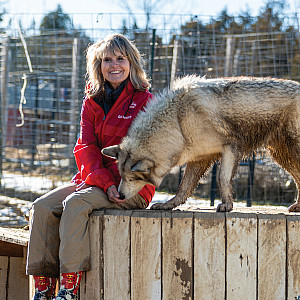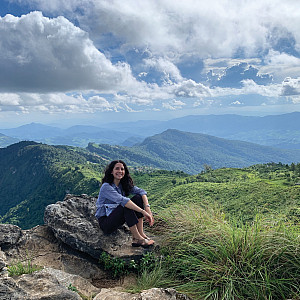Career ready after learning in and outside the classroom
“I’m from Miami. I’m used to big-city life and heat. Beloit College seemed really small when I arrived. When the weather turned cold and I still wasn’t sure what I wanted out of college, I thought about transferring.
“That’s when my first-year advisor helped me realize that Beloit offered opportunities I might not get elsewhere to apply what I was learning outside the classroom. Her willingness to invest in me and those opportunities made the decision to stay easy.”
The decision paid off. When Marcos graduated from Beloit College in May 2016,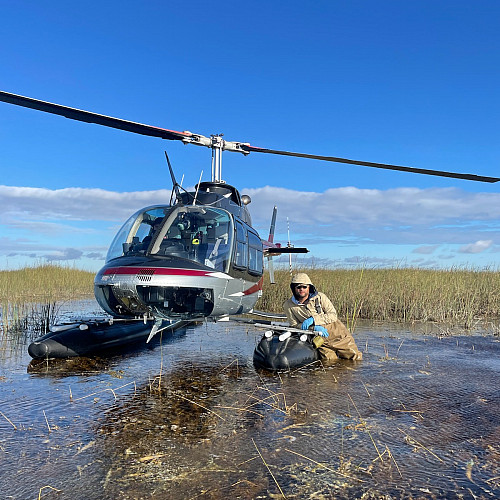
Interested in the environment when he arrived at Beloit, Marcos gravitated naturally toward an environmental studies major. But he was also interested in art. His first-year advisor, art historian Jo Ortel, helped him find the connection between the two. Professor Ortel had begun teaching about art in the age of climate change, including in the first-year seminar Marcos took with her. The connection resonated.
Motivated to learn the science behind environmental work, Marcos turned to biology. Professor Yaffa Grossman would both teach and advise him. “I can be a bit of a scoundrel, and Yaffa doesn’t mess around,” he reports. “But when she realized I was getting serious about environmental studies and biology, she helped keep me on track.”
A tip from Yaffa led Marcos to enroll in a summer study abroad program in Mexico through the University of Montana following his junior year. Over three months, he worked with the Akumal Bay Marine Ecological Center to support turtles whose nesting areas are endangered by high rise tourist hotels.
Marcos learned the practicalities of relocating turtles: “Once the turtles have laid their eggs, volunteers can pick them up and relocate them to safer areas where volunteers have dug new nests. I also learned how to examine the turtles in the field for lesions and tumors and to tag and take measurements of the them and their nests.”
He also studied the structure and functioning of the Caribbean ecosystem and improved his snorkeling and Scuba diving skills. These skills and knowledge helped him land the job with the Florida DEP, as well as his current position as a science technician with the South Florida Water Management District.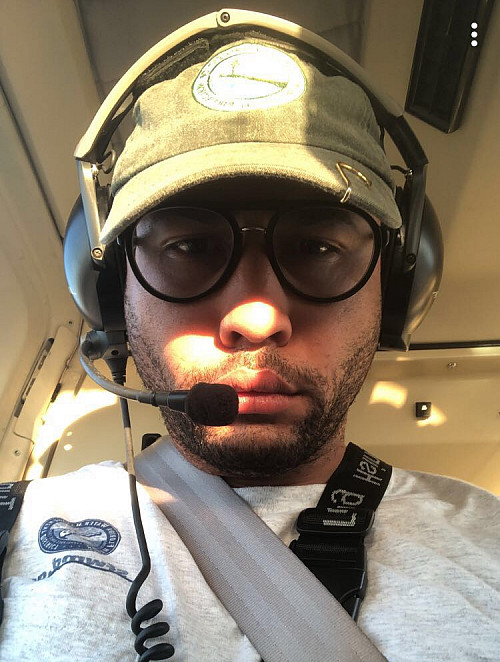
After his summer in Mexico, Marcos enrolled in environmental political economy in his senior year at Beloit in order to continue learning about environmental challenges and gain more applied experience. Assignments in the course, which is taught by international relations professor Pablo Toral, have real-world application. Marcos joined a small team to conduct research on behalf of an environmental organization based in Minneapolis.
His team monitored and tracked violations of environmental protection policies related to copper mining and the penalties resulting from them. The organization used the findings to argue that sulfur be banned in copper mining in the Boundary Waters.
Marcos took both the research and the presentation of the findings seriously. According to professor Toral, “He stood out among the student researchers for the professional way he carried himself, the quality of his presentation, and his ability to field questions about the research methods and findings.”
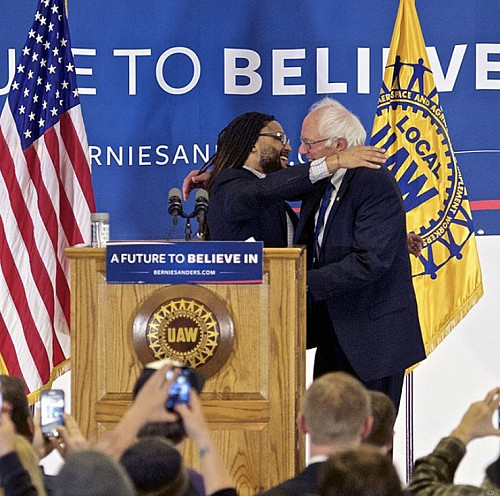
Marcos advises Beloit College students not to waste time when it comes to preparing for the job market.
“Don’t wait until you graduate to take an unpaid internship in order to qualify for a job. Beloit gives you a lot of opportunities to apply what you are learning in your classes. Listen to your advisors to take advantage of them.”
A second piece of advice: “Don’t let age deter you. I’ve always been the youngest or second youngest in the organizations I’ve worked for. Age hasn’t prevented me from being accepted and successful.”
Age also has not been a barrier to forming deep connections with alumni. A visit by Bob Norris’66 to one of Marcos’s classes, for example, spawned a lasting friendship. Both are passionate about the environment and immigrant rights. In fact, Marcos recently flew to Colorado to help Bob with an immigrant rights event, and to hike with him in the Colorado mountains. “Bob has bad knees and graduated 50 years before me, but had no trouble keeping up with me. I’ve got a lot of respect for the guy.”
